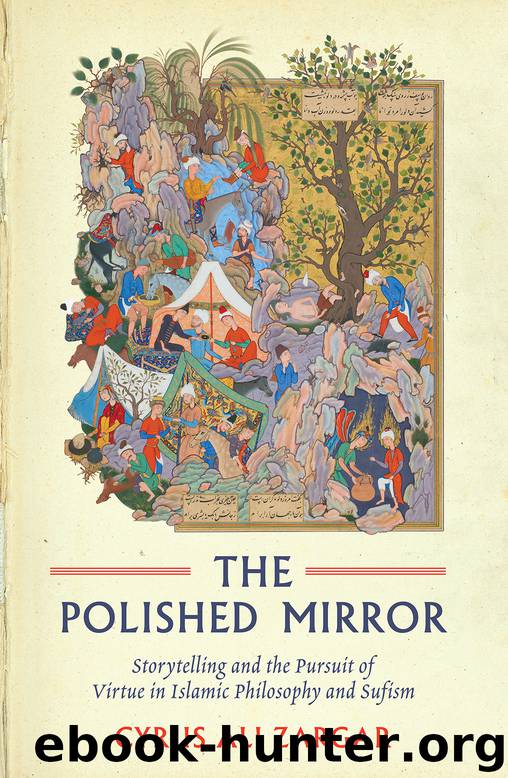The Polished Mirror by Zargar Cyrus Ali;

Author:Zargar, Cyrus Ali; [Zargar, Cyrus Ali]
Language: eng
Format: epub
Publisher: Oneworld Publications
Chapter Seven
Distancing Oneself from the Worldly: Renunciation (Zuhd) According to al-Muḥāsibī and al-Sarrāj
It is best not to draw forced comparisons between Sufism and Aristotelian virtue ethics, but renunciation does provide an instructive parallel. The greatest challenge in renunciation is that a person ought to abstain from worldly pleasures entirely out of disinterest in them, not because one is tempted by them or sees them as having great value. Rather, a true renunciant acts out of a lucid sense that value resides in God alone. This renunciant sees the worldly (al-dunyā) for what it is, as though it has no essential worth. In this there is a telling similarity between renunciation and Aristotle’s explanation of the difference between temperance and continence (enkrateia, sometimes “self-control”). According to Aristotle, one person refrains from certain bodily pleasures because he or she lacks excessive and bad appetites.1 This person’s abstention from excessive and vile pleasures is completely internalized in that it has none of the pains of compelling oneself to abstain. Such a person acts through the virtue of temperance. Another person might refrain from certain pleasures because he or she knows that “appetites are bad,” but still desires them.2 Such a person has excessive and bad appetites but, out of knowledge, simulates the virtue of temperance in avoiding such things. This person has neither temperance nor virtue because his or her motivations do not come from disposition. Rather, this person has continence, which is certainly a good thing, but not the moral goal.3 Distinguishing temperance from continence mattered to Aristotle—and to contemporary virtue ethicists—because the difference between the two displays the nature of virtue.4 Similarly, for the thinkers discussed below, one cannot progress upon the path to God without renunciation, nor can one arrive at its higher moral realizations without true renunciation.
Download
This site does not store any files on its server. We only index and link to content provided by other sites. Please contact the content providers to delete copyright contents if any and email us, we'll remove relevant links or contents immediately.
The Lost Art of Listening by Michael P. Nichols(7506)
Why I Am Not A Calvinist by Dr. Peter S. Ruckman(4153)
The Rosicrucians by Christopher McIntosh(3521)
Wicca: a guide for the solitary practitioner by Scott Cunningham(3179)
Signature in the Cell: DNA and the Evidence for Intelligent Design by Stephen C. Meyer(3138)
Real Sex by Lauren F. Winner(3023)
The Holy Spirit by Billy Graham(2953)
To Light a Sacred Flame by Silver RavenWolf(2823)
The End of Faith by Sam Harris(2742)
The Gnostic Gospels by Pagels Elaine(2531)
Waking Up by Sam Harris(2461)
Nine Parts of Desire by Geraldine Brooks(2369)
Jesus by Paul Johnson(2363)
Devil, The by Almond Philip C(2333)
The God delusion by Richard Dawkins(2309)
Heavens on Earth by Michael Shermer(2285)
Kundalini by Gopi Krishna(2185)
Chosen by God by R. C. Sproul(2165)
The Nature of Consciousness by Rupert Spira(2108)
